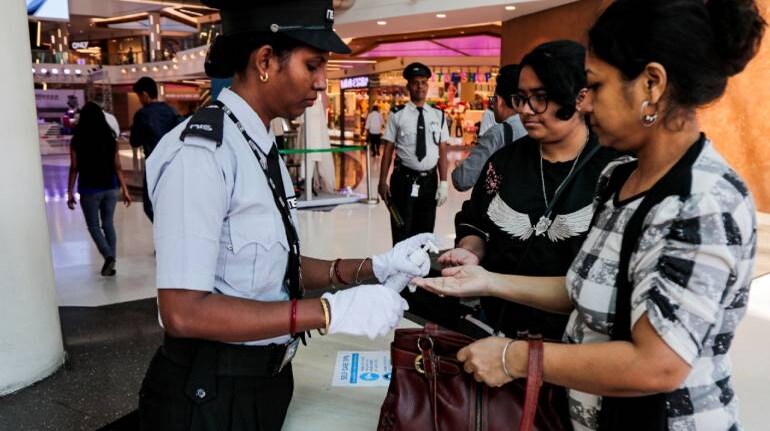
The Retailers Association of India (RAI), the unified voice of Indian retailers, has lauded government's guidelines allowing reopening of various formats of retail stores. However, it has reiterated the need for uniform reopening of stores across the country.
The Ministry of Home Affairs (MHA), in its order, has allowed states to reopen retail stores as per their own independent guidelines. This has led to multiple interpretations and rules that have inconvenienced customers and retailers, while continuing to severely impact demand and sales.
The problem has been compounded by the change in the definition of stores.
Large standalone stores are considered malls in Gujarat, Punjab, Uttar Pradesh, Andhra Pradesh, Telangana, Tamil Nadu and Assam.
Other states like Karnataka, Kerala and Tamil Nadu have prohibited stores from operating air-conditioners.
There needs to be uniform standard operating procedure (SOP) for any part of the reopening process — permission to open stores, time restrictions on operations, movement of staff and delivery vehicles, product pricing restrictions, staff strength and customers allowed in a store, and odd/even restrictions.
Emphasising the need for clarity and uniformity in the policy, Kumar Rajagopalan, Chief Executive Officer (CEO) of RAI said: "The retail industry employs about 46 million people, and it is important to keep it functioning smoothly, as before. Business is floundering, millions of jobs are at stake and we need a policy framework that allows for the non-discriminatory reopening of retail and time-bound resolution of fiscal and legal matters."
Retailers had to suffer huge losses due to the nationwide lockdown which lasted for over two months.
According to the retailers’ association, non-essential retail sales have seen a frightening drop to 80 percent in May from 50 percent in March.
Essential retail was down by 40 percent in April and may further slide to 30 percent given its current run rate, RAI said.
Also read | Local stores show faster sales recovery than organised retail: Report
The association is expecting smooth and safe opening of malls from June 8 in non-containment zones.
While extending the nationwide lockdown till June 30, to help curb the novel coronavirus pandemic, the Centre had eased restrictions, except for containment zones.
The Centre had released a list of permitted and non-permitted activities for states to follow.
Many shops and malls, especially those outside containment zones, are gearing up to reopen from June 8.
"We greatly appreciate the Centre’s detailed and meticulous guidelines on opening malls under the ‘Unlock 1.0’ phase. It gives us tremendous confidence in our ability and preparedness to facilitate the smooth and safe opening of retail across the nation,” Rajagopalan told Moneycontrol.
He further pointed out that in order to do justice to the Centre’s effort, RAI is ensuring uniform and speedy reopening of all retail across the country, which is now an economic imperative.
All shops providing non-essential services were shut in March after the government announced the nationwide lockdown to curb the spread of COVID-19, a disease caused by the novel coronavirus.
In Maharashtra, the state government has allowed all shops in ‘red zones’, except those in malls, to reopen from June 8.
Speaking about the SOP released by the government, Kumar said: “We were happy to read clarifications around air-conditioning, social distancing, deep cleaning of restrooms and the recommended audiences for malls.”
Norms to be followed
The SOPs released on June 4 mandate frequent sanitation, staggered entry of shoppers into the mall and deployment of adequate manpower by the mall’s management to ensure social distancing norms.
For air-conditioning/ventilation, the guidelines of Central Public Works Department (CPWD) shall be followed which emphasise that the temperature setting of all air conditioning devices should be in the range of 24-30 degree Celsius, relative humidity should be in the range of 40-70 percent, intake of fresh air should be as much as possible and cross ventilation should be adequate.
SOPs state that frequently touched surfaces like door knobs, elevator buttons, hand rails, benches and washroom fixtures in common areas as well as inside shops, elevators, escalators should be cleaned and regularly disinfected using 1 percent sodium hypochlorite mandatorily.
Deep cleaning of all washrooms shall be ensured at regular intervals. In the food-courts, adequate crowd and queue management is to be ensured and not more than 50 percent of seating capacity should be permitted, the SOP underlined.
Also read: Government releases guidelines for reopening of restaurants
There should be proper crowd management in the parking lots and outside the premises and preferably separate entry and exits for visitors, workers and goods/supplies should be organized, the SOP dictates.
Physical distancing of a minimum of six feet, when queuing up for entry and inside the shopping mall should be maintained as far as feasible while the number of customers inside the shop should be kept at a minimum, so as to maintain the physical distancing norms.
According to the SOP, thermal screening provisions will be placed at the entrance and visitors will be allowed only if they use face cover or masks, which should be worn at all times inside the premises.
Discover the latest business news, Sensex, and Nifty updates. Obtain Personal Finance insights, tax queries, and expert opinions on Moneycontrol or download the Moneycontrol App to stay updated!